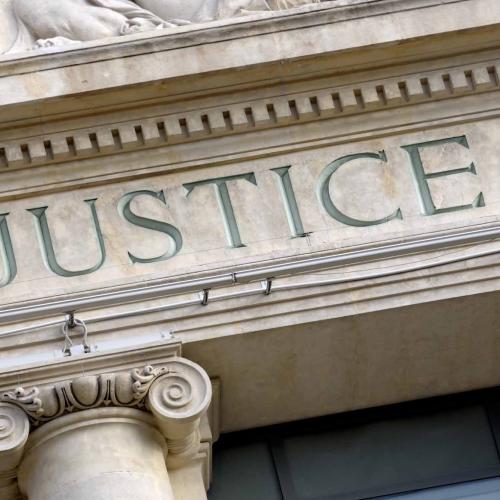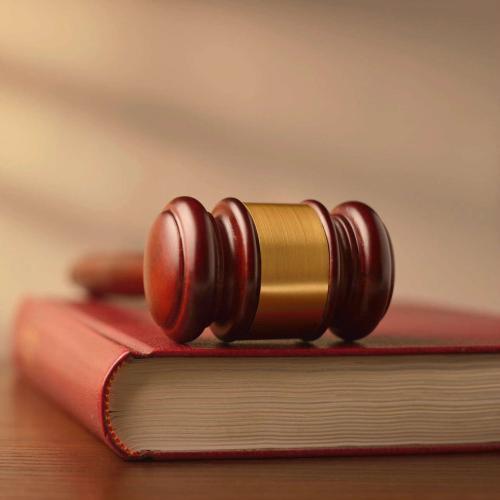The case of United States v. Olsen is a significant chapter in the history of American criminal law, particularly concerning the evolution and application of the Brady Doctrine. This article provides an in-depth analysis of the case, examining its background, the importance of the Brady Doctrine as it relates to the case, and how the case set a precedent that further shaped the scope and scale of prosecutorial obligations under Brady v. Maryland. Through this exploration, we will better understand the intricate balance between the pursuit of justice and the rights of the accused in the American legal system.
Background of United States v. Olsen
United States v. Olsen is a case that emerged from the Ninth Circuit Court of Appeals in 2013. The defendant, Kenneth Olsen, was a laboratory chemist accused of producing and distributing the illegal drug dimethyltryptamine (DMT). Olsen's conviction was ultimately challenged on the grounds that the prosecution had failed to disclose key evidence that could have been favorable to the defense, a failure which lies at the heart of the Brady Doctrine.
During the trial, the government presented evidence that included the testimony of an expert witness who analyzed the substances found in Olsen's laboratory. However, it later came to light that the prosecution had failed to disclose significant impeachment evidence related to the expert witness. Specifically, the prosecution did not reveal that the expert had previously been suspended from a crime lab for falsifying data, which directly impacted the credibility of his testimony.
The Brady Doctrine and Its Relevance to the Case
The Brady Doctrine stems from the landmark Supreme Court case Brady v. Maryland, 373 U.S. 83 (1963). In that case, the Supreme Court established the principle that the prosecution must disclose to the defense any evidence that is material to the guilt or punishment of the defendant. This requirement is grounded in the Due Process Clause of the Fourteenth Amendment, which guarantees the right to a fair trial.
"We now hold that the suppression by the prosecution of evidence favorable to an accused upon request violates due process where the evidence is material either to guilt or to punishment, irrespective of the good faith or bad faith of the prosecution." — Brady v. Maryland, 373 U.S. 83, 87 (1963).
The Brady Doctrine has since become a cornerstone of criminal procedure in the United States, ensuring that the prosecution cannot withhold evidence that might exonerate the defendant or mitigate their sentence. Over the years, the doctrine has been further refined through subsequent rulings, establishing a robust framework for evaluating the prosecution's disclosure obligations.
In the case of United States v. Olsen, the Brady Doctrine was of paramount importance. The key issue was whether the prosecution's failure to disclose the expert witness's prior misconduct constituted a violation of Olsen's rights under Brady. The Ninth Circuit had to consider whether this omission was material to the outcome of the case and whether it undermined the fairness of the trial.
Materiality and the Impact of Non-Disclosure
Materiality is a critical concept within the Brady Doctrine. The Supreme Court has held that evidence is considered material if there is a "reasonable probability" that its disclosure would have led to a different outcome in the trial. In United States v. Olsen, the undisclosed evidence regarding the expert witness's credibility was arguably material because it could have significantly weakened the prosecution's case against Olsen.
The Ninth Circuit ultimately ruled that the prosecution's failure to disclose the impeachment evidence was indeed a violation of Brady. The court found that the credibility of the expert witness was a crucial element of the government's case, and the undisclosed evidence could have led the jury to question the reliability of the expert's testimony. As a result, the court vacated Olsen's conviction, emphasizing the importance of the prosecution's duty to disclose all material evidence to ensure a fair trial.
Precedential Impact of United States v. Olsen
The ruling in United States v. Olsen further solidified and expanded the scope of the Brady Doctrine, particularly in the context of impeachment evidence. By vacating Olsen's conviction, the Ninth Circuit underscored the principle that the prosecution's obligation to disclose material evidence extends not only to evidence directly related to the defendant's guilt or innocence but also to any information that could impact the credibility of the prosecution's witnesses.
Impeachment Evidence and Its Role in Brady Obligations
Impeachment evidence refers to any information that could be used to challenge the credibility or reliability of a witness's testimony. This type of evidence is particularly significant in criminal trials, where the prosecution often relies heavily on the testimony of expert witnesses, law enforcement officers, or other individuals whose credibility can directly influence the jury's verdict.
The Ninth Circuit's decision in United States v. Olsen reaffirmed that impeachment evidence is subject to the same disclosure requirements as other types of material evidence under Brady. This means that the prosecution cannot withhold information that could be used to impeach the credibility of its witnesses, regardless of whether the prosecution believes the evidence is significant or not.
The Olsen case also highlighted the broader implications of non-disclosure in the context of expert testimony. Expert witnesses often play a pivotal role in criminal cases, providing specialized knowledge that can heavily influence the jury's understanding of complex scientific or technical issues. As such, any information that could call into question the integrity or reliability of an expert witness is of paramount importance and must be disclosed to the defense.
The Continuing Evolution of Brady Doctrine
The precedent set by United States v. Olsen is part of a larger trend in the judicial interpretation of the Brady Doctrine, which has seen a gradual expansion of prosecutorial disclosure obligations over time. Courts have increasingly recognized that the right to a fair trial encompasses not only the right to access evidence that directly pertains to guilt or innocence but also the right to challenge the credibility of the prosecution's case through effective cross-examination.
This evolution reflects a deeper understanding of the dynamics of criminal trials, where the prosecution's narrative is often bolstered by the testimony of witnesses whose credibility can be determinative of the outcome. By requiring the disclosure of impeachment evidence, courts have sought to level the playing field between the prosecution and the defense, ensuring that the truth-seeking function of the trial is not compromised by the withholding of critical information.
United States v. Olsen serves as a crucial reminder of the ongoing importance of the Brady Doctrine in safeguarding the rights of the accused and ensuring the fairness of the criminal justice system. The case reinforced the principle that the prosecution's duty to disclose material evidence is not limited to exculpatory evidence directly related to the defendant's guilt but also extends to any information that could undermine the credibility of the prosecution's witnesses.
By vacating Olsen's conviction, the Ninth Circuit sent a clear message that violations of Brady obligations cannot be tolerated, particularly when they involve the withholding of impeachment evidence that is material to the defense's case. The decision also contributed to the broader jurisprudence on Brady, reinforcing the idea that the pursuit of justice requires transparency and fairness from all parties involved in a criminal trial.
In conclusion, United States v. Olsen is a landmark case that continues to influence the application of the Brady Doctrine in the American legal system. It underscores the critical role that prosecutorial disclosure plays in ensuring the integrity of the criminal justice process and serves as a powerful reminder of the courts' commitment to upholding the principles of due process and fairness for all defendants.



